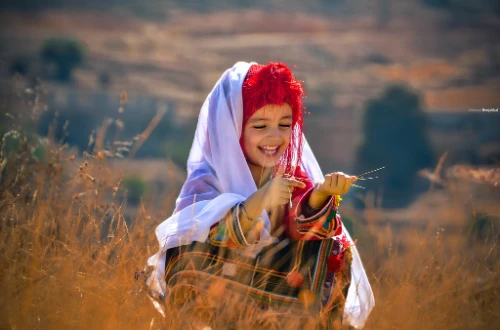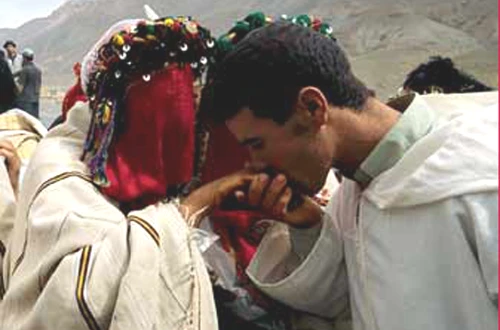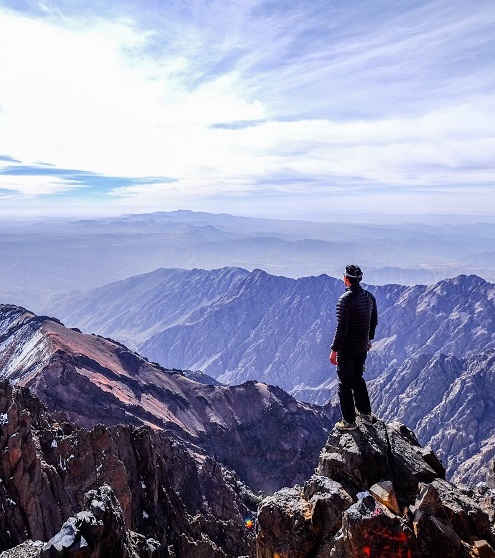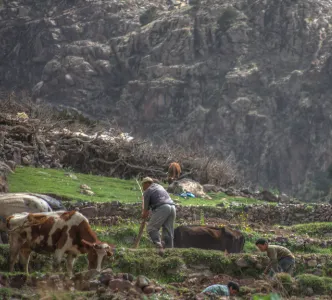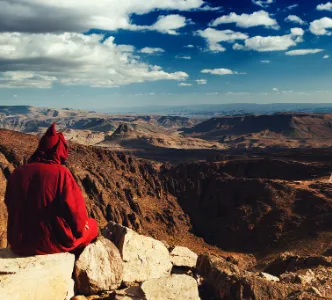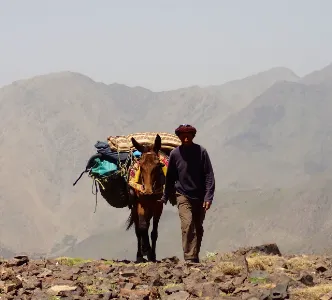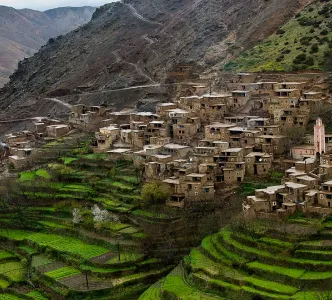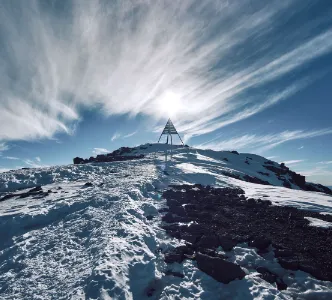Introduction
Discover the allure of Morocco's Atlas Mountains—a captivating blend of diverse landscapes, cultural richness, and warm hospitality that beckons to adventurers. The Atlas Mountain range, with its High Atlas, Middle Atlas, and Anti-Atlas segments, promises an unparalleled trekking escapade, unveiling breathtaking vistas, traditional Berber villages, and the untamed beauty of Morocco's rugged terrains.
1. High Atlas Range: A Haven for Trekking Enthusiasts
Embark on an unforgettable journey in the heart of the High Atlas Mountains, an idyllic haven where nature's grandeur unfolds. With its towering peaks, tranquil valleys, and the vibrant Berber culture, this region beckons trekkers to explore and immerse themselves. Key highlights include Toubkal National Park, the summit of Mount Toubkal (North Africa's highest peak), and the serene Ait Bougmez Valley, aptly nicknamed the "Happy Valley" for its warm hospitality.
2. Trails and Routes to Explore
From leisurely walks to challenging ascents, the Atlas Mountains boast an array of trekking routes suitable for various skill levels. Delve into the Toubkal Circuit, a multi-day trek that unveils awe-inspiring panoramas, alpine meadows, and meaningful encounters with Berber communities. For an authentic experience, the High Atlas offers a network of trails that lead through ancient villages, providing insights into the traditional Berber lifestyle.
3. Immerse in Berber Culture and Hospitality
A remarkable facet of Atlas Mountains trekking is the chance to engage with the Berber people and their enduring heritage. Renowned for their heartfelt hospitality, the Berbers offer a genuine connection as trekkers traverse their villages, gaining a firsthand glimpse into their traditional homes, customs, and delectable cuisine. Sharing in mint tea rituals and participating in age-old ceremonies adds a cultural layer to the trekking expedition.
4. Seasonal Considerations and Weather
Timing your trekking adventure through the Atlas Mountains depends on your preferences. Spring (April to June) and autumn (September to November) bring mild temperatures and vibrant landscapes, creating an ideal setting for trekking. Summer (July to August) can be warm at lower altitudes, while winter (December to February) blankets higher elevations in snow, offering a distinct yet equally captivating trekking encounter.
5. Ethical Trekking and Sustainable Practices
Just as with any natural wonder, responsible trekking practices are paramount to preserving the splendor of the Atlas Mountains. Trekkers are encouraged to uphold Leave No Trace principles, respect local traditions, and support eco-conscious accommodations and tour operators dedicated to sustainability and community empowerment.
6. Expert Tips for an Unforgettable Trek
Physical Preparation: While some routes suit beginners, adequate physical readiness is crucial due to varying terrains. Regular exercise and hiking training can boost stamina and strength.
Packing Essentials: Outfit yourself with essential gear, including robust hiking boots, layered attire, sun protection, and a reusable water container. A basic first aid kit is a wise addition.
Cultural Etiquette: Learning a few phrases in Berber or Moroccan Arabic fosters connection. Always seek permission before photographing locals and honor their privacy.
Guided vs. Independent: Novices often benefit from local guides who offer insights, ensure safety, and facilitate cultural exchange, while experienced trekkers might opt for self-guided expeditions.
Conclusion
Trekking the Atlas Mountains in Morocco transcends a physical adventure—it's a transformative odyssey through captivating landscapes, cultural richness, and the genuine warmth of Berber communities. Whether your heart seeks towering summits, hidden valleys, or authentic village life, the Atlas Mountains promise an experience that resonates deeply. As you traverse ancient paths and gaze upon spellbinding vistas, you'll not only gather memories but forge a profound connection to this natural wonder and its resilient inhabitants.
Related:
How can I learn more about Berber culture before trekking in the Atlas Mountains
What are some traditional Moroccan dishes that I should try during my trek


